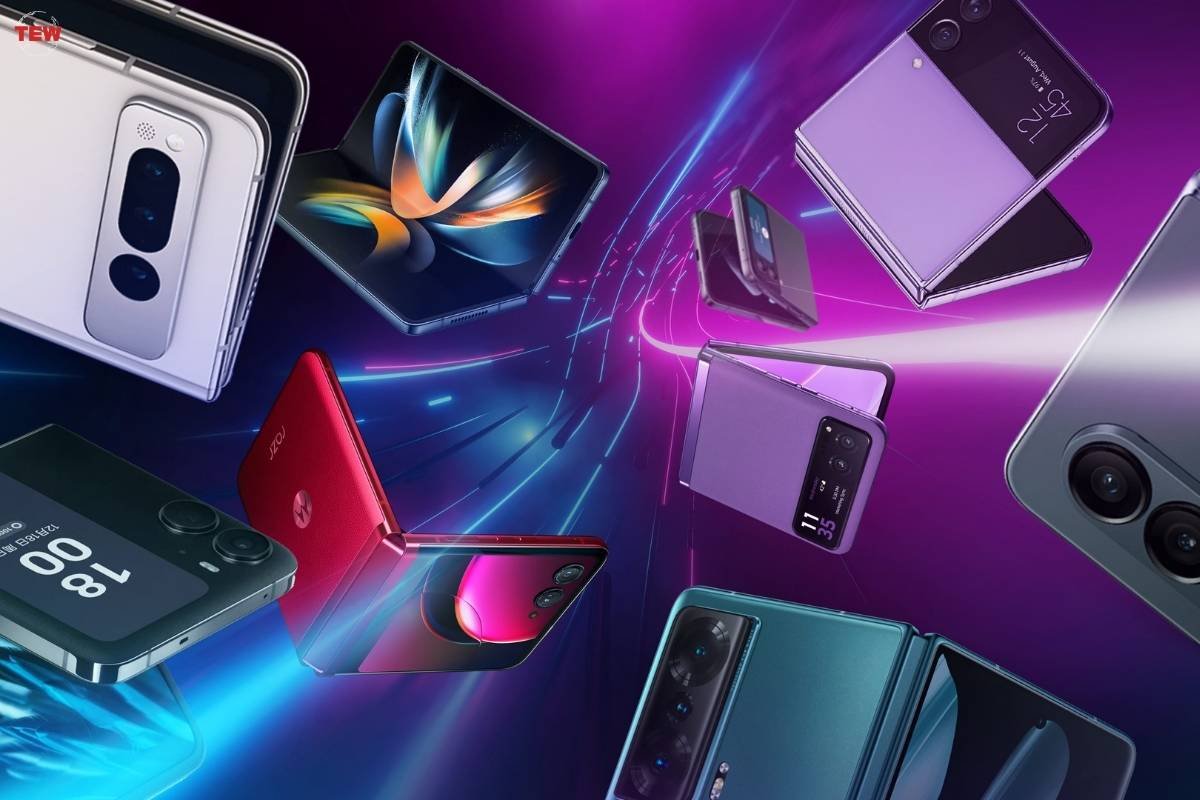Smartphones have become an essential part of our everyday lives in the ever-changing world of technology. These pocket-sized gadgets have always pushed the frontiers of innovation, and the newest trend in the smartphone market is the rise of foldable smartphones. These gadgets mark a dramatic leap in appearance and functionality, raising the question, “Are foldable phones the future of smartphones?”
While comprehensive information on current and upcoming smartphones can be found at NextGenPhone, here we are going to explore the evolution, advantages, challenges and potential future of foldable phones.
The Evolution of Foldable Phones
The idea of a smartphone that folds in half is not novel. In reality, the concept dates back to the early 2000s, when flip phones were popular. The clamshell form of these phones allowed users to fold the phone in half to answer calls or cover the screen. The current foldable phone, on the other hand, is a long way from its flip-phone predecessors.
Samsung debuted the Galaxy Fold in 2019, marking the first major advancement in foldable phone technology. This gadget had a flexible display that could fold in half, thereby transforming a smartphone into a small tablet. While there were significant technical challenges with the original release, it signaled the start of a new era in smartphone design.
Advantages of Foldable Phones
Foldable smartphones have a number of characteristics that make them a fascinating possibility for the future of smartphones.
1. Expanded Screen

The most noticeable advantage of foldable phones is the additional screen they provide when unfolded. Users can use a small phone for daily chores and then unfold it to reveal a tablet-sized screen for multimedia consumption, gaming, or work.
2. Enhanced Multitasking
Additionally, foldable phone designs allow for improved multitasking capabilities. With the wider display, users can run multiple applications side by side, making it simpler to manage work and be more productive.
3. Improved Portability
Foldable phones strike a balance between accessibility and screen size. When folded, they may easily fit in a pocket or purse and their small size makes them ideal for on-the-go usage.
4. Innovative Use Cases
The foldable nature of screens has encouraged creativity in app development because of their adaptability. Some applications are purpose-built to make use of the foldable form factor, offering new experiences that regular smartphones cannot.
5. Longevity
Because of its robustness, foldable phones may have a longer lifetime. The flexible screens are built to survive thousands of folds, which might reduce the need for periodic updates.
6. Challenges and Hurdles
While foldable phones show potential, they also confront significant hurdles that must be overcome before they can become the smartphones of the future.
7. Durability

Foldable screens are prone to deterioration over time. The wrinkle where the screen folds might cause problems, and the general durability of these gadgets is a concern.
8. High Price Tag
Foldable phones are currently expensive, placing them out of reach for many consumers. As technology matures and production costs decrease, this issue may become less prominent.
9. Weight and Thickness
Foldable phones are often heavier and thicker than standard smartphones. Because of this, the user’s comfort and portability might be compromised.
10. App Optimisation
While some apps have embraced foldable phone features, many others are not optimised for these devices, leading to inconsistent user experiences.
11. Battery Life
The bigger displays of foldable phones need more power, which might result in a fast battery drain. Indeed, efficient power management is critical for these gadgets to become popular.
The Future of Foldable Phones
Foldable phones are undeniably a step forward in smartphone innovation, but their success is dependent on overcoming the hurdles described above and capitalising on their benefits. Here are some possible future possibilities for foldable phones:
1. Mainstream Adoption
Foldable phones might become popular if makers can overcome challenges such as durability, pricing and battery life. As manufacturing prices fall, these gadgets may become more accessible to a broader variety of users.
2. Specialized Use Cases
Foldable smartphones can find a market for themselves in some specialised use cases. Professionals who want a bigger screen for mobile productivity or gamers searching for a new gaming experience, for example, might be major target customers.
3. Hybrid Devices
It’s possible that other cutting-edge technologies, including augmented reality (AR) and virtual reality (VR), might one day combine with foldable smartphones. A foldable phone might be a multipurpose platform for immersive experiences.
4. Eco-Friendly Options
As worries about electronic waste rise, manufacturers may invest in developing more sustainable foldable phone designs, prolonging the lifetime of these gadgets and making them more ecologically friendly.
5. Competition and Innovation

Competition will spur innovation as more businesses join the foldable phone market. This might lead to design, durability and affordability advancements.
Conclusion
The emergence of foldable phones represents a substantial change in smartphone form and functionality. They provide more screens, improved multitasking and novel use cases. However, in order for them to genuinely change the future of smartphones, they must overcome difficulties in durability, affordability and battery life. Whether or not foldable phones will become the market standard depends on whether or not manufacturers can overcome these obstacles, meet the changing demands of consumers and come up with novel solutions.
While foldable phones cannot completely replace standard smartphones, they are a promising addition to the ever-changing world of mobile technology, with the potential to change personal computing and communication.


















